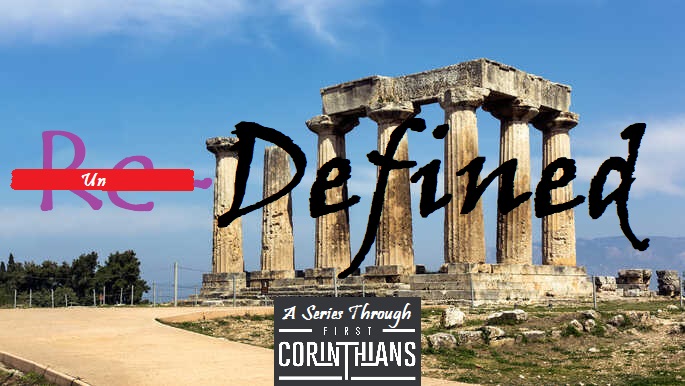House Rules
By Anthony Casperson
11-6-21
It might seem kinda early to think about it, if you’ve been following along with my current sermon series through the book of Daniel, but the general concept of the next series has been on my mind recently. While it won’t begin until after the new year, there’s some prep work to get ready. (And I keep a few sermons ahead of the uploading schedule.)
The upcoming series will be through the book of 1 Corinthians and named “Un-Re-Defined.” This is on account of the attitude common among the followers of Jesus in first century Corinth that led to having a “Corinthianized” definition of certain spiritual terminology and ideas. And Paul sought to point them back to the proper definition of those terms.
You see, the general culture of Corinth was one that valued things antithetical to the Gospel that Paul preached. For instance, the Apostle’s servant-mindedness went against the lavish self-promotion of the city. Paul wanted to give glory to Jesus for the amazing work of the cross, while the Corinthians only invoked the name of awe-inspiring patrons if it meant they could get ahead in the world.
And don’t even let me get started talking about this one guy named Babbius who had multiple inscriptions throughout the city that proclaimed his greatness at erecting a monument “at his own expense.” (Ancient social media posting?) At least two of these inscriptions survived to today, with one of them promoting him as the one who approved the building of the monument too.
Above and beyond the definition of what it meant to live well, these people who claimed to follow Jesus also used worldly definitions of knowledge and wisdom. Their behavior—particularly of the sexual variety—adhered to culturally-defined approvals. They even redefined what it meant to be spiritual and free.
This all led to living lives that melded well with the culture around them, but not so well with the teachings of the Gospel. (Gee, I wonder why I’m planning on preaching this series?)
They had been shown the ways of God. Paul had taught them holy practices and truth. But there was something drawing them to bend/break the manner of life outlined by God and his word. They didn’t personally like what such things would mean for their preferred way of life, so they chose to act as though the rules were something other than what they were.
While I was thinking about this concept, my mind went to a common occurrence among RPG players (and some board gamers): house rules.
Sometimes, if a rule written in a game doesn’t seem to make sense, or goes against a play style of our group, we just pretend as if the rule works the way we want. After all, “It’s our game.” And “What difference does it make if we’re having fun?”
There’s an aspect in the gaming sphere where I can understand this mentality. (Case in point, my gaming group plays Gloomhaven with the mindset that we share all the collected gold equally because we don’t like the competitive element of “who’ll get to that loot first” in our cooperative game.)
However, the thing about house rules is that, in our desire to make it more fun for us, we can destroy aspects that we didn’t know existed.
One quick example. In the RPGcampaign where I was the DM, one player questioned the fairness of rolling low on a skill check with a skill in which they were highly proficient. They asked if there was a way to make it so that if they rolled lower than a 10 on the d20, then they could just call the roll a 10. I objected to the notion on account of the fact that I knew a certain class gained that exact thing at a later level. And the member of the party who played a character with that class would be robbed of a feature designed only for their class.
Had I not known that aspect of the rules, I might have been convinced otherwise. However, this house rule would’ve proven foolish when the reality of why that certain rule existed in the game came to light.
When we make house rules, it’s a judgement call that we know better than the designer of those rules. It’s a type of self-promotion that places us above the one who made it. As if we know more about the subject than the creator.
And while, with a board game, it might not be that big of a deal to make up the occasional house rule (and even encouraged in certain circumstances), when we come to the life of a follower of Jesus it’s a different story.
We can’t know better than the all-knowing Creator of the universe. We should never consider our house rules to be better than God’s commands. No matter how much we’d prefer the house rule.
It’ll be difficult for us to admit them, but we followers of Jesus should take a look at our lives and ask where our house rules have taken over. Where have we chosen something other than what his word teaches because it sounds better to us? Or our culture? These re-definitions need to be un-made.
With God’s ways, it’s always for our benefit to follow his rules by the book.




